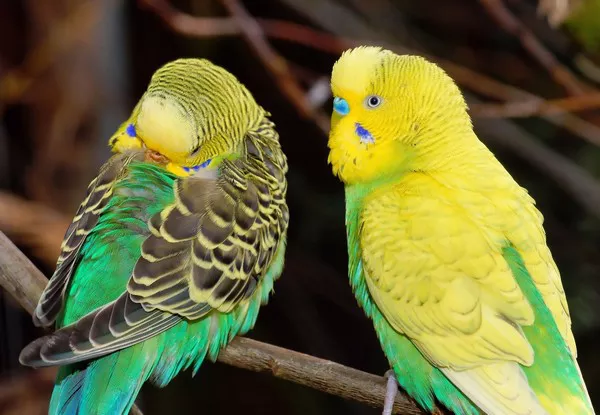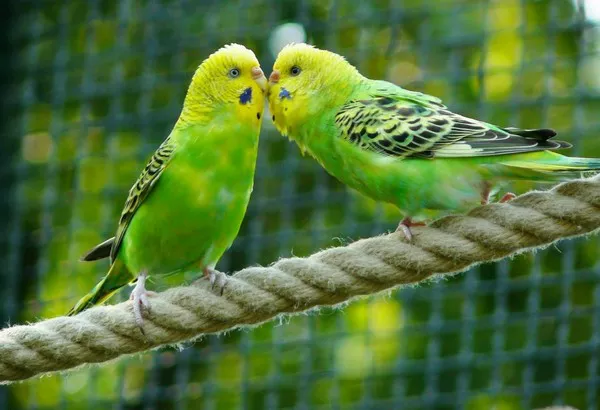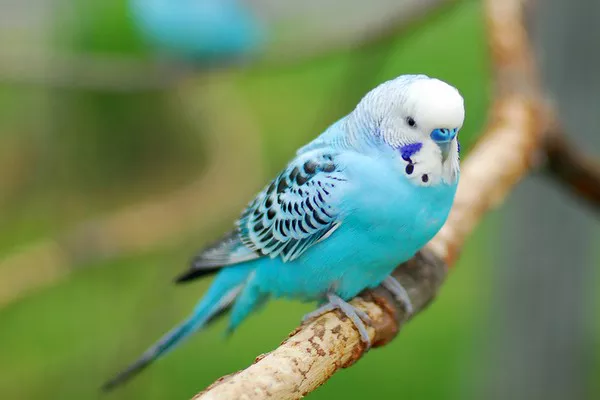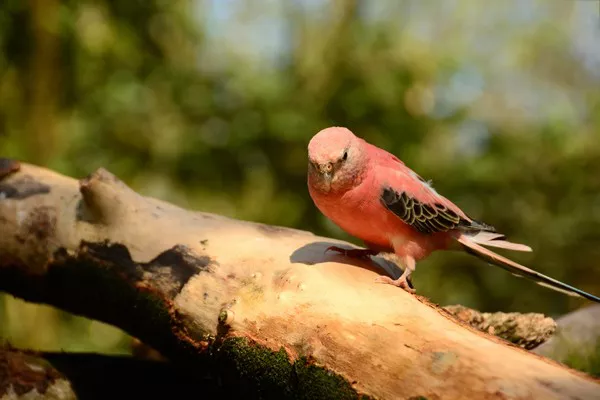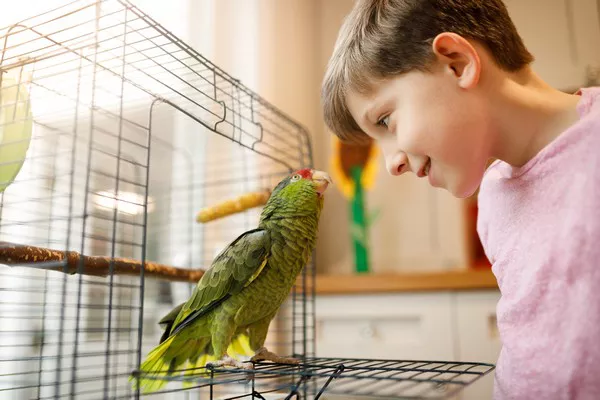Sun conures, with their vibrant yellow, orange, and green feathers, are a beloved species of parrots known for their playful personalities and affectionate nature. These small, lively birds are often kept as pets, providing endless entertainment and companionship. As with all pet birds, ensuring their health and well-being is a top priority for owners. One key aspect of their care is diet—what to feed them, what to avoid, and how to maintain a balanced, nutritious regimen.
Among the many questions pet bird owners have, one common query is whether sun conures can safely eat grapes. Grapes are a popular fruit enjoyed by many people and are sometimes offered to pet birds as a treat. However, there are important considerations when offering grapes to sun conures and other parrots. In this article, we will explore whether grapes are safe for sun conures, the nutritional benefits of grapes, potential risks, and how to properly incorporate them into a sun conure’s diet.
1. Sun Conures’ Diet in General
Before we dive into the specifics of feeding grapes to sun conures, it’s essential to understand their general dietary needs. Sun conures, like other parrots, require a varied diet that includes a mix of seeds, fruits, vegetables, nuts, and high-quality pellets. This ensures that they receive the right balance of nutrients necessary for good health.
Seeds and Pellets
High-quality pellet food is one of the best options for sun conures, as it is formulated to provide all the essential nutrients in precise amounts. However, pellets should make up only a portion of their overall diet. The rest should consist of fresh fruits, vegetables, and occasional treats.
Fruits and Vegetables
Fresh fruits and vegetables are an important part of a sun conure’s diet. These foods provide essential vitamins, minerals, and antioxidants that help support their immune system and overall health. Sun conures typically enjoy a wide variety of fruits, including apples, mangoes, pomegranates, bananas, and berries. Vegetables such as carrots, spinach, and bell peppers are also great options.
Nuts and Seeds as Treats
While nuts and seeds are high in fat, they should be offered in moderation. Sun conures particularly enjoy almonds, walnuts, and sunflower seeds, which can be used as occasional treats. However, nuts and seeds should not make up the bulk of their diet, as they do not provide all the essential nutrients a parrot needs.
2. Are Grapes Safe for Sun Conures?
Now, let’s focus on the specific question: can sun conures eat grapes? The short answer is yes, sun conures can eat grapes, but with some important guidelines and precautions.
Nutritional Value of Grapes
Grapes are a good source of vitamins and antioxidants, which are beneficial for a sun conure’s health. Some of the key nutrients found in grapes include:
Vitamin C: Grapes contain vitamin C, which helps to boost the immune system, promote healthy skin, and reduce inflammation.
Vitamin K: This vitamin plays an important role in blood clotting and bone health.
Potassium: Potassium helps to regulate blood pressure, balance fluid levels, and support nerve function.
Antioxidants: Grapes contain antioxidants like flavonoids and resveratrol, which help protect cells from oxidative damage and may reduce the risk of certain diseases.
Fiber: Grapes provide a small amount of dietary fiber, which helps to support healthy digestion.
These nutrients make grapes a good occasional treat for sun conures, providing variety and a natural source of sweetness.
Risks and Considerations When Feeding Grapes
While grapes are safe in moderation, there are some important things to keep in mind when offering them to your sun conure:
High Sugar Content: Grapes are relatively high in sugar. Although the natural sugars found in fruit are not harmful in small amounts, they should still be fed in moderation to prevent weight gain or other health issues like fatty liver disease.
Choking Hazard: Grapes are small and can pose a choking hazard if they are not properly prepared. It’s essential to cut the grapes into smaller pieces before offering them to your sun conure. This reduces the risk of choking and makes it easier for your bird to eat.
Pesticides and Chemicals: Like many fruits, grapes are often treated with pesticides and other chemicals during farming. It’s important to wash grapes thoroughly before offering them to your bird. If possible, try to buy organic grapes, as they are less likely to contain harmful chemicals.
Toxicity in Large Quantities: While grapes are generally safe for birds, there is some evidence suggesting that large quantities of grapes can cause kidney issues in birds. For this reason, grapes should never make up a large portion of your sun conure’s diet. They should be given as a treat, no more than a few times a week.
Seedless Grapes: When feeding grapes to your sun conure, it’s best to offer seedless grapes. Although grape seeds are not known to be toxic to birds, they can be difficult to digest and may cause digestive issues in some cases.
3. How to Safely Offer Grapes to Sun Conures
If you decide to give your sun conure grapes as a treat, it’s important to follow some basic guidelines to ensure their safety and enjoyment. Here are some tips on how to properly prepare and offer grapes to your bird:
Wash Grapes Thoroughly
As mentioned earlier, grapes should be thoroughly washed before offering them to your sun conure. This helps remove any residual pesticides or harmful chemicals on the skin. A gentle rinse under cold water is usually sufficient. If you want to be extra cautious, you can soak the grapes for a few minutes and then rinse them off.
Remove Stems and Leaves
Before feeding grapes to your sun conure, make sure to remove any stems or leaves. These parts of the grape vine can be tough and difficult for your bird to digest. Additionally, some parts of the grape vine may contain compounds that are harmful to birds, so it’s best to avoid them.
Cut Grapes into Smaller Pieces
Sun conures are small birds, and whole grapes can be too large for them to eat comfortably. To reduce the risk of choking, cut grapes into smaller, bite-sized pieces. This makes it easier for your bird to handle and eat, and it helps prevent any accidents.
Offer Grapes in Moderation
Grapes should only be offered as an occasional treat. Too much sugar, even from natural sources like fruit, can lead to obesity and other health problems. A few small pieces of grape a couple of times a week is a reasonable amount for a sun conure.
Monitor for Allergies or Digestive Issues
Whenever you introduce a new food to your sun conure’s diet, it’s important to monitor for any signs of allergies or digestive problems. These may include diarrhea, vomiting, or changes in behavior. If you notice any unusual symptoms, discontinue feeding grapes and consult an avian veterinarian.
4. Other Fruits and Vegetables for Sun Conures
While grapes are a safe and enjoyable treat for sun conures when fed appropriately, it’s important to offer a variety of fruits and vegetables to ensure a balanced diet. Here are some other fruits and veggies that sun conures generally enjoy:
- Apples (without seeds)
- Bananas
- Mango
- Papaya
- Strawberries
- Blueberries
- Pineapple
- Carrots
- Spinach
- Bell Peppers
- Sweet Potatoes
- Broccoli
These fruits and vegetables not only provide essential nutrients but also keep your sun conure’s diet interesting and diverse. Remember to always wash fruits and vegetables thoroughly, and remove any seeds, pits, or stems before offering them to your bird.
5. Potential Health Benefits of Grapes for Sun Conures
When offered in moderation, grapes can provide several health benefits for your sun conure. Some of the potential benefits include:
Boosted Immune System: The vitamin C and antioxidants in grapes help strengthen the immune system, keeping your sun conure healthy and better able to fight off infections.
Improved Skin and Feather Health: Vitamin C also plays a role in maintaining healthy skin and feathers, which is important for a parrot’s overall appearance and comfort.
Better Digestion: Grapes contain fiber, which helps support healthy digestion and regular bowel movements in sun conures.
Hydration: Grapes have a high water content, which can help keep your bird hydrated, especially during warmer months when dehydration is a concern.
Conclusion
In summary, sun conures can safely eat grapes in moderation. Grapes offer a variety of beneficial nutrients such as vitamins, antioxidants, and fiber, all of which contribute to a sun conure’s overall health. However, grapes should not be a staple of their diet due to their high sugar content. Additionally, grapes should always be prepared properly—washed, seedless, and cut into small pieces—to minimize any potential risks.
As with all treats, grapes should be offered in moderation, as part of a well-balanced diet that includes a variety of fresh fruits, vegetables, pellets, and seeds. By following these guidelines, you can safely incorporate grapes into your sun conure’s diet, providing them with a tasty and nutritious treat that they will love.
Always consult with an avian veterinarian if you have concerns about your sun conure’s diet or if you notice any unusual symptoms after feeding them new foods. With proper care and attention, your sun conure can enjoy a healthy, happy life, full of vibrant feathers and playful antics.
Related Topics:


